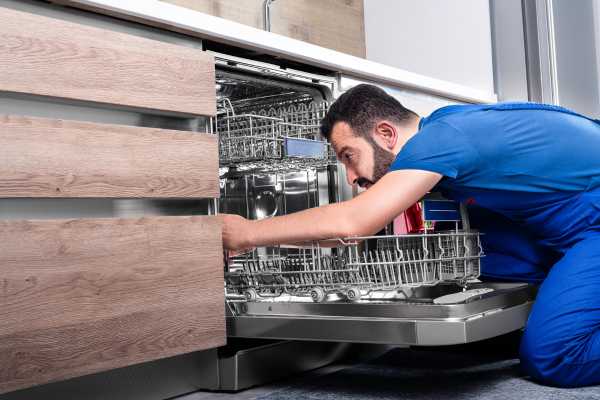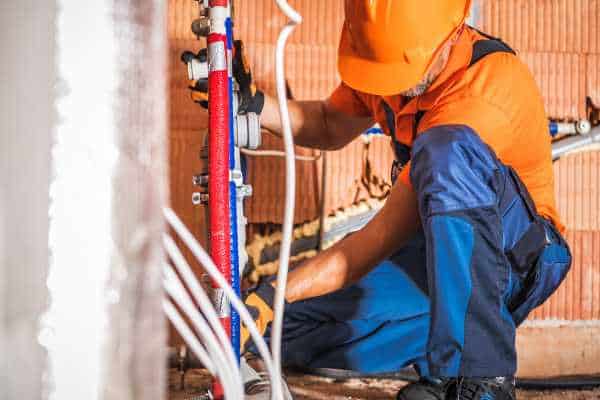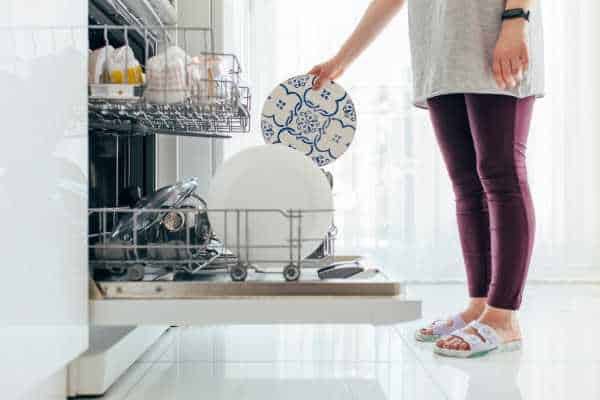If you’ve ever found yourself asking, “Why won’t my dishwasher start” you’re not alone. A dishwasher that refuses to power on can be incredibly frustrating, especially when you rely on it for daily convenience. Whether it’s a sudden power failure, a mechanical issue, or a simple user error, understanding the common reasons behind this problem is essential for finding a quick solution. In this article, we’ll explore the top causes for why your dishwasher won’t start and provide step-by-step troubleshooting tips to help you get it back up and running. No need to panic—often, the fix is simpler than you think!
Common Reasons Why a Dishwasher Won’t Start

If your dishwasher won’t start, electrical issues and mechanical malfunctions are the most common culprits. Electrical problems like a blown fuse, tripped circuit breaker, or faulty power cord can prevent your dishwasher from powering on. Additionally, mechanical issues such as a malfunctioning door latch or control board can stop it from operating. The door latch must securely close for the dishwasher to start, while a damaged control board can disrupt the cycle settings. By addressing these potential issues, you can often resolve the problem without needing professional repair. Understanding these common causes helps you quickly diagnose the issue and get your dishwasher running again.
Power Supply Problems: Is There Electricity to the Dishwasher?

One of the most common reasons your dishwasher won’t start is a power supply issue. Begin by checking the power cord to ensure it’s securely plugged into the outlet. If the cord appears damaged, it may need replacing. Next, examine your circuit breaker or fuse box to see if a blown fuse or tripped breaker is the culprit. Sometimes, a power surge or electrical issue can cause the circuit to trip, cutting off power to the appliance. Reset the breaker or replace any blown fuses, then try restarting your dishwasher. A simple power supply check is often the easiest fix for a non-starting dishwasher.
Door Latch Issues: Why the Door Needs to Be Properly Closed
One common reason why your dishwasher won’t start is a faulty door latch. The door latch ensures that the dishwasher is properly closed and sealed before it can begin its cycle. If the door isn’t securely latched, the dishwasher’s safety mechanism won’t allow it to start. A malfunctioning door switch, which signals the machine that the door is closed, can also prevent the Dish cleaning machine from operating. To test the door switch, inspect it for any visible damage or wear. You can use a multimeter to check for continuity, ensuring the switch is functioning correctly. Fixing or replacing the door latch or switch can solve the issue and get your dishwasher working again.
Control Board or Timer Malfunctions

A common reason why your dishwasher won’t start is a malfunctioning door latch or issues with the control board and timer. If the door latch isn’t securely closed, it can prevent the Dish cleaning machine from starting, as most models won’t begin a cycle unless the door is properly latched. Similarly, a faulty control board may fail to send signals to initiate the cycle. Signs of a broken timer include the Dish cleaning machine not advancing through its cycles or staying stuck on one stage. To diagnose, check for visible damage or burnt areas on the control board and test the timer for continuity. Replacing these components often resolves the issue.
Blown Thermal Fuse: What It Is and How It Affects Startup
One common reason your dishwasher won’t start is a blown thermal fuse. The thermal fuse plays a crucial role in protecting your Dish cleaning machine from overheating by shutting down power if the temperature gets too high. If this fuse blows, it will prevent the Dish cleaning machine from starting. To test the fuse, you’ll need to disconnect the power and locate it, typically near the heating element. Use a multimeter to check for continuity; if there’s none, it’s time to replace the fuse. Replacing a blown thermal fuse is a relatively simple task, and doing so can restore power to your Dish cleaning machine, getting it back in action quickly.
Water Supply Problems: Lack of Water Can Prevent Startup

If your dishwasher won’t start, there are a few key issues to consider. First, check the door latch—if it isn’t properly closed, the Dish cleaning machine won’t initiate. Another common culprit is a blown thermal fuse, which can prevent power from reaching the Dish cleaning machine. Water supply problems can also stop the cycle from starting, particularly if the water inlet valve isn’t working correctly. Ensure the valve is not clogged or damaged, as this can restrict water flow. Additionally, inspect the water line for blockages that could be preventing water from reaching the appliance. Addressing these issues quickly can restore your Dish cleaning machine to full function.
Clogged or Blocked Filters and Drain Pump
One of the common reasons your dishwasher won’t start could be a faulty door latch, which prevents the machine from initiating its cycle. Additionally, a blown thermal fuse can disrupt power to the system, causing it to fail at startup. Another potential culprit is clogged or blocked filters and the drain pump. Over time, food debris and grease can build up, obstructing the flow of water and preventing the Dish cleaning machine from functioning properly. To avoid this, regularly clean the filters and drain pump. This simple maintenance ensures proper water drainage and helps your Dish cleaning machine start and run efficiently.
Faulty Door Switch: The Unsung Hero of Dishwasher Functionality

A faulty door latch or switch often causes your dishwasher not to start. If the door isn’t securely latched, the machine won’t engage, as it relies on the door being fully closed to start the cycle. Symptoms of a malfunctioning door switch include the dishwasher failing to start, even when the door appears shut. To check the switch, first ensure the door is properly aligned. Then, use a multimeter to test for continuity. If the switch shows no continuity, replace it. Replacing the door switch is straightforward: disconnect the power, remove the inner panel, and install the new switch.
Overheating and High-Temperature Shutdowns
A faulty door latch or switch is a common reason why your dishwasher won’t start. If the door isn’t properly latched, the safety switch prevents the Dish cleaning machine from powering on. Similarly, overheating or high-temperature shutdowns can also halt your dishwasher’s operation. Dishwashers have built-in sensors to protect the internal components from excessive heat, and if the temperature gets too high, the system will automatically shut down to prevent damage. To reset an overheating Dish cleaning machine, simply turn off the power, wait for it to cool down, and then restart. If the issue persists, a faulty door latch or switch may need to be replaced for proper function.
Error Codes: What Your Dishwasher Is Trying to Tell You

When your dishwasher won’t start, error codes might be the key to solving the issue. These codes are your dishwasher’s way of communicating specific problems, helping you pinpoint the cause quickly. Common Dish cleaning machine error codes include “E1” (indicating a water supply issue), “E2” (a problem with the heating element), and “E3” (a drainage error). Each code corresponds to a unique fault, making it easier to determine if you need to fix a clogged filter, faulty thermostat, or malfunctioning pump. By decoding these error messages, you can troubleshoot the problem effectively before calling a technician, potentially saving both time and money.
Conclusion
If you’re asking, “Why won’t my dishwasher start” there are several potential causes to consider, from simple power issues to more complex mechanical failures. By troubleshooting common problems like door latch issues, electrical faults, or error codes, you can often identify and fix the issue without professional help. However, if these steps don’t resolve the problem, it may be time to consult a technician. Remember, a well-maintained Dish cleaning machine can save you both time and energy, so taking the time to diagnose and repair issues early will keep it running smoothly for years to come.
